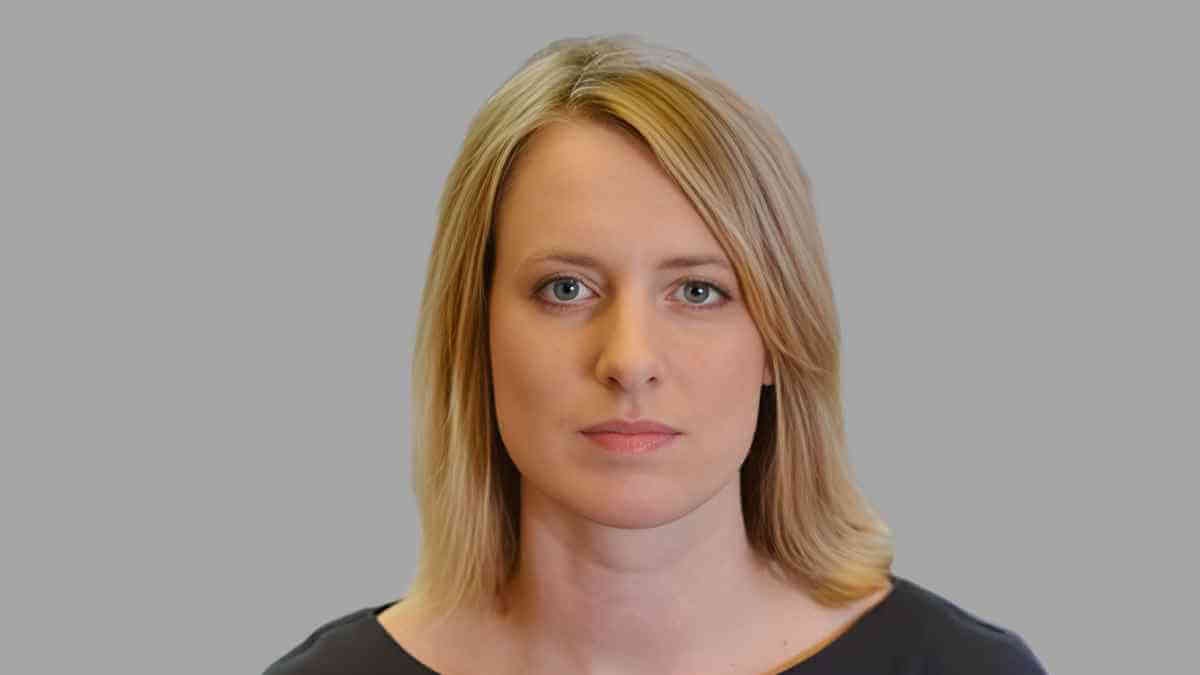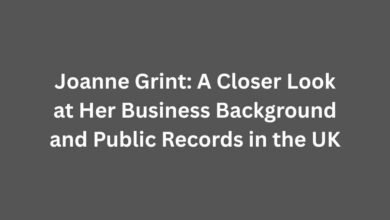Rachel Jupp: The Trailblazer Shaping Investigative Journalism in the UK

Rachel Jupp stands as a name that resonates powerfully in the world of British broadcast journalism. Her journey from think tank rooms to the pinnacle of the BBC newsroom offers a narrative of aptitude, dedication and trailblazing leadership. For anyone seeking insights into how investigatory journalism evolves, or how women break ceilings in media management, Jupp’s story is both instructive and inspiring.
Table of Contents
ToggleBeginnings and Formative Years
Rachel Jupp’s formative years were shaped by a keen interest in social and political issues. She pursued Social and Political Sciences at King’s College, Cambridge, laying a foundation in understanding structures of power, dynamics of governance and public policy. She later complemented that with a Master of Public Administration at Columbia University, which sharpened her grasp of public institutions and the intersections between state and society. From the outset, her academic journey suggested someone who wanted not just to report on society but to understand and interrogate its machinery.
Early Steps in Policy and Think Tanks
Following her studies, Jupp moved into the policy domain, joining Demos, the British think tank. In that environment she engaged in research, debate and public policy formation. Working at Demos offered exposure to the ideas and forces that underlie media, governance and social discourse. It also strengthened her conviction in using evidence and insight to challenge received wisdom—skills that proved vital when she switched to journalism.
Transition into Broadcast Journalism
Rachel Jupp’s transition into media began at Channel 4 News, where she took on roles of growing responsibility. In time, she became Head of Home News, overseeing domestic coverage of crime, politics, public policy and social affairs. This role demanded judicious judgment: what stories mattered and how to treat delicate subjects without sensationalism. In that position she honed relationships with insiders—police, legal sources, officials—and developed a nose for the stories behind bureaucratic façade.
Sharpening Investigative Focus at Newsnight
Her tenure at Channel 4 not only polished her editorial instincts but clarified her interest in deep investigations. She moved to Newsnight as Deputy Editor around 2013. Newsnight is known for probing, long-form exploration of power, media, culture and society. That setting was fertile ground for Jupp to oversee investigations, work with reporters and push for in-depth impact journalism rather than superficial coverage. At Newsnight, she worked at the intersection of politics and public life—shaping debate, holding government to account and navigating the line between fierce scrutiny and legal constraints. That experience readied her for her next big step.
Taking the Helm of Panorama
In September 2016, Rachel Jupp was appointed Editor of Panorama, the BBC’s flagship investigative documentary programme. This was a landmark moment: she became the first woman in two decades to oversee the show. The placement carried both symbolic and substantive weight. It signaled that investigative platforms were opening to more inclusive leadership, and it entrusted her with a show that many see as representing the zenith of UK broadcast inquiry.
Vision for Panorama
Taking the helm of Panorama came with serious responsibilities: editorial integrity, journalist safety, legal rigour and the mission to speak truth to power. Jupp’s approach was to balance these competing pressures without compromise. Under her leadership, the show maintained high standards of verification, ensured fairness and resisted sensationalism. That required managing risk such as defamation potential, source protection, verification of documents and legal reviews. At the same time, she needed to keep the storytelling compelling, to reach and engage audiences. She also had to sustain morale among producers and reporters, many working under tight budgets and with the stress of investigating powerful interests.
Key Investigations and Public Impact
During her editorship, Panorama continued producing impactful investigations—on corporate misdeeds, political accountability, climate issues and national security. The trend was consistent: choosing stories with public interest, opening new revelations and shaping public discourse. Under Jupp’s watch, Panorama reaffirmed its position as a trusted investigative voice in British media.
Leadership Style and Editorial Philosophy
One recurring attribute mentioned by peers is Jupp’s inclination to empower her teams. She believed in collaborative editing: giving producers and reporters space while offering guidance, rather than micromanaging every detail. That fosters innovation and ensures reporters feel ownership of their work. She also emphasised rigorous debate at early stages: discussing story ideas, potential counterarguments, ethical pitfalls and legal vulnerabilities. Such open editorial dialogue ensures that any investigation has been stress tested before it airs.
Upholding Journalistic Ethics
Rachel Jupp’s guiding principle has been that credibility is non-negotiable. Investigative journalism thrives only when audiences trust that claims are substantiated, sources are protected where necessary and voices are heard fairly. She sought to minimise sensationalism, clarify context and allow affected parties to respond. That ethic resonates most in politically sensitive stories or ones involving reputational risk. A misstep in investigative reporting can erode public trust not just in one show, but in journalism more broadly. Jupp understood the weight of that responsibility and shaped Panorama accordingly.
Balancing Innovation and Tradition
Operating a storied institution like Panorama means respecting legacy—brand, reputation, audience expectations—while adapting to changing media landscapes of digital, social media and streaming platforms. Jupp positioned the programme to remain meaningful to modern audiences without losing the depth and seriousness that defined it. That meant nurturing multimedia versions of investigations, shorter clips for online platforms and integrating data journalism or interactive storytelling where relevant. The challenge was ensuring those innovations didn’t dilute substance.
Challenges and Institutional Pressures
As with many public broadcasters, the BBC faced financial pressures and political scrutiny. Leading an investigative unit in that environment is always complex—budget cuts, questions about neutrality, internal bureaucracy and external political pressures. Jupp had to steer Panorama amid those constraints, ensuring standards weren’t eroded even if resources tightened.
Any investigative show must navigate defamation law, privacy rules, source confidentiality and editorial complaints. High-stakes stories involving political corruption or corporate wrongdoing come with legal pushback. As editor, Jupp was accountable for mitigating those risks without undermining journalistic purpose. That balancing act is delicate and demanded both courage and legal acumen. Investigations may attract hostile responses from denial campaigns, litigation or public pressure. Jupp’s role was to protect her team while ensuring transparency and fairness.
Influence on Investigative Journalism in the UK
Under Rachel Jupp’s leadership, Panorama reaffirmed that investigative journalism in the UK should combine ambition with care. Her stewardship emphasised that going deep into powerful institutions demands meticulous fact checking, legal readiness and ethical sensitivity. Her legacy includes influencing competitors and independent producers to hold themselves to similarly high standards.
Her appointment was also symbolically powerful. It signalled that women can lead the most demanding journalistic forums—a domain long dominated by men. Her performance in that role provides a case study for aspiring female editors and leaders in news media. It helps challenge structural barriers and shifts expectations about whose voices guide major newsrooms.
She showed how a traditional programme can stay relevant in a digital age. By incorporating multimedia storytelling and aligning with audience behaviour, she illustrated that heritage media need not be bound by old formats. That adaptation encourages younger journalists to think cross-platform, embedding investigation in digital ecosystems.
Later Career and Broader Impact
After her time at Panorama, Rachel Jupp transitioned into a broader BBC content executive role. That move allowed her to influence journalism strategy across genres—beyond a single programme to the wider news and current affairs agenda. She also took a period of parental leave, and by 2023 Jess Brammar succeeded her in the executive post. This shift suggests her ambition to shape not just individual stories but the institutional frameworks and editorial priorities of the BBC as a whole.
The Qualities That Define Her Legacy
Many in journalism excel in reporting; fewer thrive in leadership. Jupp bridges both realms. She understands the nuts and bolts of investigative work—source cultivation, fact verification, narrative construction—while also managing budgets, institutional politics and vision. Her guiding compass seems always to be: “Which stories matter?” She has steered away from trivial sensationalism and toward issues that speak to power, accountability, fairness and institutional dysfunction. That commitment strengthens journalism’s claim to legitimacy.
Investigative journalism involves complexity: tangled facts, opaque systems and powerful adversaries. Jupp has shown the capacity to hold complexity, ask hard questions, bring clarity and manage risk without succumbing to paralysis or sensational shortcuts.
Conclusion
Rachel Jupp is more than a name in British journalism—she is a standard bearer. Her journey from policy research to editing Panorama and then shaping broader editorial direction at the BBC speaks of ambition, intellect and integrity. She embodies what investigative journalism aspires to: courage, care and a constant eye on public service. In the decades ahead, her influence will persist not just in the stories she oversaw, but in the journalists she mentored, the editorial standards she embedded and the institutional pathways she helped open—especially for women. For those who care about how media holds power to account, Rachel Jupp’s story is one both to study and to emulate.



